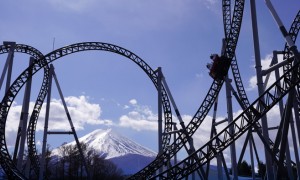新西兰乳业巨头恒天然集团生产的三批含有乳清蛋白浓缩物的乳品因不卫生管道受污染,含有肉毒杆菌,人食用后会肉毒中毒。
New Zealand dairy giant Fonterra is refusing to reveal what products might contain a potentially deadly bacteria or which countries are at risk - but the company has swung into damage-control mode in China.
Fonterra said on Saturday infant and child formula and sports drinks made from its whey products could contain Clostridium botulinum, which can cause botulism.
Symptoms include nausea, vomiting and diarrhoea, followed by paralysis, and it can be fatal if not treated.
Three batches of whey protein concentrate manufactured at Fonterra's Hauptau plant in Waikato, New Zealand's North Island, were contaminated in May last year by an unsanitary pipe.
The whey protein tested positive for Clostridium in March, but because most strains of the bacteria are harmless, Fonterra continued testing until Clostridium botulinum was identified on July 31 - after which it notified the Ministry for Primary Industries.
The dairy giant has advised eight of its customers that their products may be contaminated - and New Zealand products are understood to be among those potentially affected.
Fonterra's managing director of New Zealand milk products, Gary Romano, told a press conference in Auckland on Saturday that consumer safety is paramount, but the company is refusing to say which companies in New Zealand or overseas are involved.
"We don't believe that it would be helpful [to give that information]," he said, adding it was up to Fonterra's customers and their local regulatory authorities to locate any affected products and recall them.
Romano said the potential impact on someone consuming a contaminated product would depend on their age and the amount they consumed.
For an adult, a small amount of contaminated whey protein " would probably pass through unnoticed".
The dairy giant's chief executive Theo Spierings said they were doing everything they could to assist the eight customers affected in ensuring any product containing this ingredient is removed from the marketplace and that the public is made aware.
"Our focus is to get information out about potentially affected product as fast as possible so that it can be taken off supermarket shelves and, where it has already been purchased, can be returned," Spierings said.
Spierings will fly to China during the weekend to talk "widely" with local companies about the contamination.







